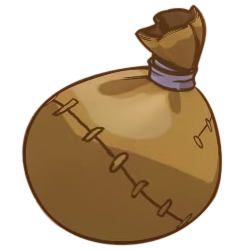BRAWNDO!!! IT’S GOT WHAT PLANTS CRAVE! ELECTROLYTES!
If I remember correctly, this type of study is inherently flawed because it just measures how long fluids stay in your body before you urinate, which is a useless metric. There is no benefit to a fluid staying in your system for a longer amount of time than the equivalent amount of a different fluid. Please correct me if I am wrong.
IIRC you’re supposed to drink until you urinate in order to confirm proper hydration. Drinking milk until I pee sounds tough.
Only the strongest wills club.
Thing is, why does it matter if something exists that hydrates you better than water? Water is abundant and practically free - at least orders of magnitude more free than any marginally better substitute. You don’t need a precise and refined strategic hydration strategy. When you get thirsty just drink some water, you’ll be fine.
edit: yes, this does not cover edge cases like illness or working under very hot conditions
It matters if you work outside in the summer months like I do. I can’t physically hydrate fast enough some days. So I end up a little worse each day of the week. Something that hydrates better starts to sound pretty good. For 99% of people? Just drink water.
Edit: I just read the article and milk is (one of) the answer(s). I tell my coworkers every year during heat illness training that if I go down and they give me milk I’m coming up swinging.
Liquid iv will keep you alive. Also salty snacks.
Just gonna pop in here to yell at the clouds. I hate the name “Liquid I.V.” for a powdered sports drink. It’s none of the things. It’s a dry-ass powder that doesn’t go in your veins. Fuck. And it’s presumably meant to evoke the emergency dehydration scenario of world-class athletes dying on the sideline, hooked up to saline drips to keep their muscles from cramping inside-out. Everything about the branding is crap.
The product itself is fine though.
INTRODUCING THE ALL-NEW SOLID ORAL™ SPORTS HYDRATION
SOLUTIONDRINKTHING!“Nothing gets my head back in the game like some Solid Oral.” “I didn’t believe the hype, but my teammate gave me Solid Oral and now I won’t settle for less.”
Sells itself, it’s perfect.
Salty snacks is my go to. I don’t really like liquid IV or Gatorade etc. I’ll drink a liquid IV if it’s really hot, but I’m big on plain, flat water.
I guess I’m screwed. I can’t have too much salt or I get dizzy/vertigo. Stupid Menieres disease
If you are dehydrated from an illness typically something Gatorade or water with a bit of salt in it will help you hydrate better then just water.
Salt AND sugar (glucose) , when both consumed at the same time, activate transport channels in the bowel that increase water uptake. Not to say you need as much sugar or salt in Gatorade, liquid IV etc.
It’s called Oral Rehydration Solution (ORS) and it’s 4 cups water, 1/2 teaspoon salt, 2 tablespoons sugar.
article links to a yahoo version of 2019 CNN which links to a 2016 study with a URL resulting in a redirect to the new standalone website for the journal now-declared-independence instead of a DOI I had to rescue from the archives which now links to the ScienceDirect hosting of the article instead: https://doi.org/10.3945/ajcn.115.114769 (Thankfully open (archive) access)
In summary, the present study describes a novel tool to enable the objective assessment of the effectiveness of beverages to maintain hydration status. The BHI is reproducible and the pattern of response for a range of commonly consumed beverages is consistent with what is known about the effects of their constituents on water balance.
So they’re telling us you need longer to digest things which aren’t pure water - a shocking result! But I strongly doubt that running on a hot day while drinking milk is a good idea
I don’t think digesting and water absorption are the same thing. Hydration is absorbing the water and digestion is processing what’s left besides the water.
My husband and I were having lunch in a diner last weekend and by the bar they had a display cooler selling Smart Water. I over heard the lady next table over tell her friend: “oh I need to get some of that before we go. ITS GOT ELECTROLYTES!” she said, unironically. I nearly choked on my lunch. Lol
Save water, drink beer!
T-shirt from 1992
Yes ᕕ( ᐛ )ᕗ
I remember once reading that having one beer and then changing to water would be a good rehydration strategy.
And I definitely believe it. Feels like that anyway. But.
Oh man I’d like a cold beer.
Can I get in on that?
Didn’t the University of Florida figure this out in the 60s and why Gatorade exists?
Not only does it quench your thirst better, it tastes better, too, idiot!
The fastest hydration is via the WHO oral rehydration solution, which is far too sugary and salty for everyday use
Yes, all the ways in which human lose water they also lose electrolytes (“salts”). More with sweat, but still some with urine. So, re-hydrating should include at least some of those. This has been known for decades, tho ravers often forget it and have died from hyponatremia.
Yes, all the ways in which human lose water they also lose electrolytes
All except one: you also lose water through exhalation, particularly in dry air. It’s basically never going to be the main way you lose water, though
^This person has witnessed Arrakis
Living in the sauna that is Arkansas, I don’t usually think about dry air, but I think you are correct. If you’ve dehydrated yourself through breathing, plain water is fine for hydration.
Most people get enough salt for the day through food though.
If you can have food that is an electrolyte source with your water, that’s fine.
If you consumed the food prior to the dehydrating events, it won’t assist in restoring electrolytic balance.

Yeah, nothing I crave more after running 5k than a tall glass of… milk? 🤮
Honestly maybe not after a long run but sometimes when I’m really dehydrated I legit crave milk
I regularly (weekly) run 25k runs. If I had milk afterwards, sure, I’d retain that fluid for longer, but I’d get all congested and start seeing spots in front of my eyes. I know this because I’ve involuntarily done it.
What works best is small sips of water every 2k or so after 10k, followed by a glass of water when I’m done to flush my system, followed by water with trace amounts of sugar, sodium and potassium added.
Binding water up in your stomach is totally useless for maintaining electrolyte and water levels in the body, even though it’s technically (temporarily) increasing fluid uptake.
When I was doing long distance runs, there was nothing more I wanted afterwards than some chocolate milk
results like this, always makes me think, who paid for the study?
RJM is chair of the Scientific Advisory Board for the European Hydration Institute. PW has received funding in the last 3 y from the European Hydration Institute for other hydration-related research. None of the other authors reported a conflict of interest related to the study.
Could not find much more information on this institute. It ran an introduction to a conference in a supplement to a trusted, peer-reviewed journal but supplements have a general reputation of being advertisements.
But water does hydrate you, and its free/cheaper than anything else.
2/3 of the world is lactose intolerant so milk can’t be the best for hydration
When it comes to alcohol, stronger forms, like whiskey, for example, actually dehydrate, while beer shows better results.
I’m replacing water with beer the next time I run a marathon.
/this was a joke. i don’t run
BRAWNDO!!! IT’S GOT WHAT PLANTS CRAVE! ELECTROLYTES!
Hahahaha!! I love that movie!!!
We don’t have time for handjobs.
Yeah, a lot of people don’t realize that electrolytes are just as important for hydration as water. Especially if you’re doin some heavy activities and sweatin buckets. You lose so much potassium in effort sweat, and you’ll just start locking up without it.
But tap water has electrolytes, right? That’s why we get electrocuted.
100% pure water does not conduct electricity, but who uses that?
Tap water has too few electrolytes to restore your electrolytic balance after losing water (via sweating or urination). But yeah, it does technically contain electrolytes.

















